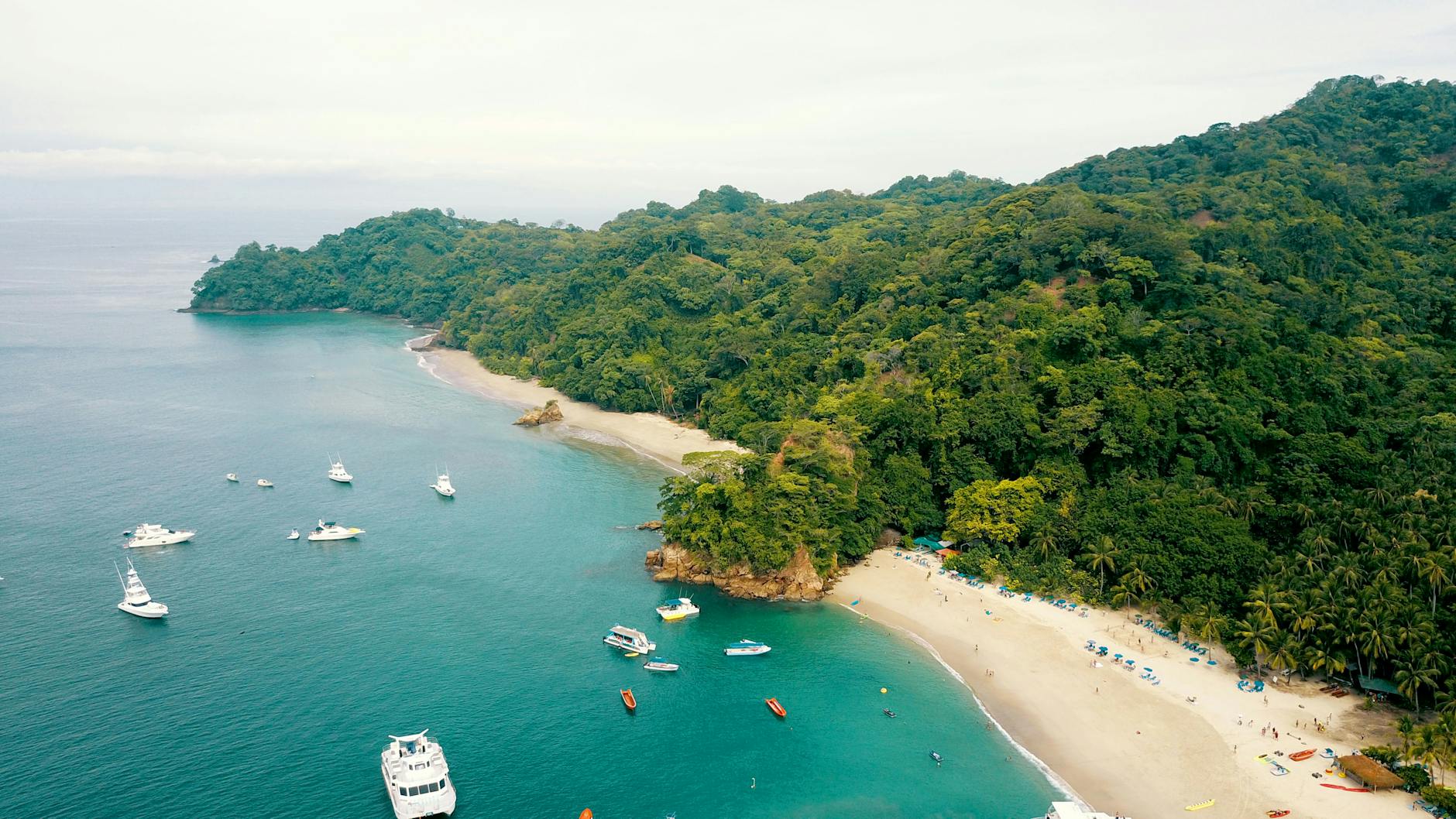How to Experience Wildlife Safaris in Australia Responsibly

Understanding the Australian Wildlife
Australia boasts a diverse array of wildlife that mesmerises many environmentally conscious travellers like myself. The Royal Botanic Garden Sydney offers a glimpse into the nation's rich biodiversity, showcasing both native plants and the interconnectedness of ecosystems. This unique setting provides a serene yet educational backdrop for understanding how Australia's natural flora supports our native wildlife.
Key Native Species
Australia is home to a plethora of unique species, many of which cannot be found anywhere else in the world. Creatures like the koala, known for its sleepy demeanor, and the agile kangaroo highlight the country's endemic fauna. Exploring such species in their natural habitats offers an opportunity to appreciate their adaptation strategies, an experience akin to a Namibia safari where observing animals in their own environments elevates the understanding of ecological dynamics.
Unique Ecosystems
Australia's ecosystems range from arid deserts to lush rainforests, each offering distinct opportunities to witness the balance of life. The Great Barrier Reef, for instance, is a bustling underwater world supporting myriad marine species. It’s akin to exploring the vibrant biodiversity found in Central America tours that traverse rainforests and explore marine life.
Conservation Status
Australia's wildlife faces significant challenges, prompting urgent conservation efforts. Initiatives are crucial to safeguard habitats under threat from climate change and human activities. Like the efforts in Arctic cruises that emphasise climate impact awareness, Australia’s programs strive to instil a sense of responsibility towards preserving these unique arctic cruises landscapes.
Choosing Responsible Safari Tours
Eco-Tourism Certification
Eco-tourism certification plays a crucial role in ensuring your safari adventures are environmentally responsible. When planning a trip, I always start by checking if the tour operators are certified by recognised eco-tourism bodies. These certifications assure us that the operations uphold sustainable practices and minimise ecological footprints. A certified tour might offer experiences like Patagonia tours, ensuring not just awe-inspiring landscapes but also adherence to conservation standards.
Aligning with Conservation Goals
Choosing a safari tour aligned with conservation goals is vital. I always review the operator’s commitment to wildlife preservation and habitat protection. This means supporting operators that contribute to local wildlife initiatives and enhance the natural environment. By selecting tours with a clear conservation focus, like those found in Machu Picchu tours, I can ensure that my travels support my broader environmental values and goals.
Local Community Engagement
Engaging with the local community is equally important when selecting a responsible safari tour. Some operators work closely with local communities, offering economic opportunities and involving them in decision-making processes. This collaboration not only benefits the local populace but also enriches my travel experience, providing insights into indigenous practices and ways to support sustainable living. While planning my journeys, I think about experiences within Australia, such as visiting the Taronga Zoo with its conservation programs, which reflect similar principles through their involvement with local conservation efforts.
Best Practices for Sustainable Viewing
Minimizing Human Impact
In our commitment to preserving nature, understanding how to minimise our impact while exploring is crucial. It starts with low-disturbance behaviours, like staying on designated trails and maintaining a respectful distance from wildlife. In Sydney, for instance, places like the Royal Botanic Garden Sydney remind us of the delicate balance between natural beauty and human presence.
Wildlife Observation Etiquette
Practising patience and respect when observing animals is essential. Silently observing their natural behaviour without the interference of noise or movement ensures their habitats remain undisturbed. I've learned from working alongside conservationists at Taronga Zoo that this approach not only protects ecosystems but enriches the viewing experience.
Supporting Conservation Efforts
While embarking on Galapagos tours, or other voyages like a Galapagos cruise, supporting conservation initiatives is vital. Many tours offer information on contributing to local efforts, such as funding wildlife sanctuaries or participating in beach clean-ups. In Sydney, the efforts seen in conservation programs can inspire travellers to find ways to make their journeys purposeful and planet-friendly. When travelling with awareness and intention, we contribute to the protection of these extraordinary environments for future generations to appreciate.
Engaging with Local Initiatives
Volunteering Opportunities
Exploring opportunities to volunteer during your travels can deeply enhance your understanding and connection with local ecosystems. Many destinations around the globe offer Africa tours and experiences where you can actively participate in meaningful conservation efforts. Volunteering can involve activities such as assisting in wildlife monitoring, restoring natural habitats, or supporting community-based conservation projects. For instance, spending time at a wildlife rehabilitation centre offers firsthand experience in the meticulous care and protection of endangered species. This not only contributes to vital work on the ground but also enriches your journey with purpose and insight.
Participating in Citizen Science
Citizen science initiatives are an incredible way to merge travel with vital research. By contributing data points, like bird sighting records or plant health checks, you aid scientists in building comprehensive environmental data sets. While visiting places like the Galapagos Islands, you can join local efforts through Galapagos Islands tours to count species or monitor environmental changes. Participating in these activities often reveals fascinating interconnections in ecosystems and strengthens your role in global conservation efforts, compelling you to make informed choices that contribute positively to wildlife preservation.
Learning from Indigenous Perspectives
Indigenous communities hold invaluable knowledge about local ecosystems and their processes. Engaging with these custodians of ancient wisdom offers fresh perspectives on sustainable travel. Many indigenous tours provide an opportunity to understand conservation strategies honed over generations. Participating in these insightful interactions can transform your approach to conservation, encouraging an appreciation of methods that prioritise land stewardship. Whether you're learning about plants used for traditional medicines or understanding the spiritual significance of animals, these experiences can ignite a powerful desire to protect and respect these traditions.
Navigating the Complex Terrain of Responsible Safari Travel
Addressing Environmental Concerns
As I meander through Sydney's rich tapestry of urban and natural environments, I'm reminded of the delicate dance we must perform when engaging with wildlife. Our urban sprawl threatens the equilibrium, creating new challenges for conservationists. Yet, through awareness and cooperation, there exist pathways to safeguard our natural wonders.
Immediate actions include supporting the Royal Botanic Garden Sydney's conservation projects and participating in activities that mitigate negative environmental impacts. The coastal walks from Bondi to Coogee reveal breathtaking landscapes, and it’s imperative we tread gently, respecting local flora and fauna.
The Importance of Choosing Legitimate Operators
Navigating the maze of safari operators demands vigilance, as there are those who may mislead or downplay the significance of environmental impact. It is crucial to ensure that tours are eco-certified and genuinely contribute to conservation goals, much like those initiatives supported by Taronga Zoo with its conservation programs. Such programs not only protect wildlife but also educate us on sustainable practices.
Preserving Sustainability While Managing Costs
Engaging in sustainable travel doesn’t imply financial extravagance, yet balancing costs with sustainability remains a challenge. Accessible and affordable volunteering opportunities mean more people can partake in conservation, magnifying the effect of collective efforts. Contributions might be small, but together they create powerful ripples of change.
By embedding ourselves in local projects and understanding indigenous perspectives, as seen in citizen science efforts, we find inspiration in the stories that positively ripple through our ecosystems. These practices ensure we leave not just footprints behind, but a legacy of preservation and hope for future generations.


